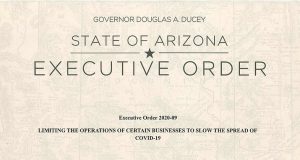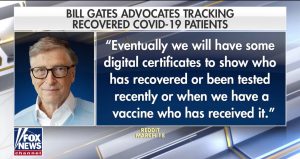 “Those who would give up essential Liberty, to purchase a little temporary Safety, deserve neither Liberty nor Safety.” Benjamin Franklin
“Those who would give up essential Liberty, to purchase a little temporary Safety, deserve neither Liberty nor Safety.” Benjamin Franklin
“The Constitution is not a suicide pact.” Supreme Court Justice Robert Jackson
“If the government will not protect constitutional rights designed to preserve our freedom, it is up to the people to reclaim them.” Wisconsin Supreme Court Justice Rebecca Bradley
At this writing, there are 41 states whose governors have issued some statewide variation of a “stay at home” or “shelter in place” order. In the other nine states, four governors have issued limited orders and five no orders at all. While the novel corona virus is attacking us, some tools state governments have chosen have put constitutional rights at risk as well.
The statewide orders vary in scope and in crucial ways regarding the “essential” exceptions, enforcement and potential penalties. The statewide bans on work, travel and the gathering of groups of people have one thing in common: they are all clearly unconstitutional.
The Fourteenth Amendment Extends the Bill of Rights to the States
Consider the following phrase of the 14th Amendment:
“No state shall make or enforce any law which shall abridge the privileges or immunities of citizens of the United States; nor shall any state deprive any person of life, liberty, or property, without due process of law…”
As a result of that provision the following privileges and immunities of United States citizens cannot be abridged by state government:
- Freedom of Speech
- Freedom of Religion
- Freedom to Peaceable Assembly
- Right to Bear Arms
- Freedom from Unreasonable Search and Seizure
- Freedom from Taking of Property without Just Compensation
- Due Process of Law
All the above rights are found in the Constitution. The challenge to those defending the conduct of governors issuing blanket orders as constitutional is to find an “emergency exception” to element of the Bill of Rights.
There Is No Emergency Exception to the Bill of Rights
Although the orders vary from state to state, the limits on public gatherings in all the orders clearly abridge the First Amendment rights of speech, religion and assembly. Many orders have deemed gun shops as non-essential, infringing on Second Amendment rights. When people are gathered in someone’s back yard, home or apartment and are raided by police, it is warrantless unreasonable search and seizure. Ordering the shut down of an otherwise lawful business is a regulatory taking of property without any compensation. What’s lacking in all of this is due process of law in violation of the Fifth and Fourteenth Amendments.
While the 10th Amendment reserves great power to the states, the 14th Amendment and its “No state shall…” command limits the reserved power of the states.
Governors cite various “emergency” powers granted by state constitutions and state laws. Those state constitutional and statutory provisions notwithstanding, there is no “emergency exception” to be found in the US Constitution.
Defenders of the constitutionality of these “stay at home” orders cite either state actions that took place before the 14th Amendment or specific state actions for public health like quarantines or isolation that have taken place in the past.
The problem is that many governors like Governor Pritzker of Illinois cite a public health law designed for shutting a location or isolating a person. These laws have due process provisions for challenging the validity of such orders on an expedited basis. The Illinois law for example allows for a court challenge to be heard within 48 hours. These laws balance liberty, property and due process rights with public safety. The blanket orders do not.
The rights being infringed by these orders are among the most fundamental. The US Supreme Court has developed rules for testing legality of such infringements. The interest of the government must be important and compelling. The means addressing the government interest must be the least restrictive of the rights possible.
While state governments have assumed sweeping powers to battle this novel corona virus these powers are limited. The state’s conduct has to be overwhelmingly in the public interest, rooted in rational, scientific ends and done by the least restrictive means possible. As a matter of due process there needs to be an established means to challenge the state action. The manner in which most of these orders have been issued, the only method of challenging is disobedience and prosecution.
Challenges are cropping up. A lawsuit in Texas is challenging orders prohibit gatherings for church services and two in Los Angeles challenging orders to shut gun shops. In both instances the orders have been blanket orders to close. A woman in Kentucky has filed suit because she has been ordered not to travel to Ohio and a Pennsylvania woman received a $200 ticket because she went out for a drive. Freedom of religion, the right to bear arms and the right to travel are fundamental rights. Such orders are clearly not the least restrictive.
Just because a governor asserts he or she has certain authority doesn’t make it true. Governor Terry Evers of Wisconsin said he had the authority to delay Wisconsin’s primary election and issued an order moving the election based upon the corona virus emergency. The order was challenged. The Wisconsin Supreme Court declared the order void as outside the governor’s authority.
 While the Constitution is not a suicide pact as Justice Jackson rightly posited, if we surrender blanket government infringements on our liberty, we will wind up with neither liberty nor safety as Franklin aptly predicted.
While the Constitution is not a suicide pact as Justice Jackson rightly posited, if we surrender blanket government infringements on our liberty, we will wind up with neither liberty nor safety as Franklin aptly predicted.
To protect our rights, it’s important that we challenge the government to prove the need and ensure its conduct is the least restrictive. When we demand the government respect our rights, we have a duty to exercise them responsibly.
Bastiat succinctly explained the limits of our rights in relation to the rights of others: “My right to extend my fist ends at the tip of your nose.” To bring the concept into the corona virus context: “My right to be near another ends at the limits of a potential sneeze.”
Infringement in the Name of National Security or Public Health
 The constitutional limits on government are stated in clearly affirmative terms. The first phrase in the Bill of Rights is “Congress shall make no law…”. Those limits were extended to the states by the 14th Amendment’s “No State shall…”. Acceptance of violations of those commands only leads to further violations and loss of liberty. We place chips in our pets to control and track them. Bill Gates is proposing that people get chipped, specifically with medical history.
The constitutional limits on government are stated in clearly affirmative terms. The first phrase in the Bill of Rights is “Congress shall make no law…”. Those limits were extended to the states by the 14th Amendment’s “No State shall…”. Acceptance of violations of those commands only leads to further violations and loss of liberty. We place chips in our pets to control and track them. Bill Gates is proposing that people get chipped, specifically with medical history.
The Price of Liberty is Eternal Vigilance
 Mr. Reed Hopper of the Pacific Legal Foundation explains: “The notion of “eternal vigilance” is generally ascribed to Thomas Jefferson. Given Jefferson’s love for freedom, it’s an apt attribution. But it has been reported that John Philpot Curran expressed this same sentiment in a speech upon the Right of Election in 1790 (published in a book titled “Speeches on the late very interesting State trials” in 1808).
Mr. Reed Hopper of the Pacific Legal Foundation explains: “The notion of “eternal vigilance” is generally ascribed to Thomas Jefferson. Given Jefferson’s love for freedom, it’s an apt attribution. But it has been reported that John Philpot Curran expressed this same sentiment in a speech upon the Right of Election in 1790 (published in a book titled “Speeches on the late very interesting State trials” in 1808).
He said: “It is the common fate of the indolent to see their rights become a prey to the active. The condition upon which God hath given liberty to man is eternal vigilance; which condition if he break, servitude is at once the consequence of his crime and the punishment of his guilt.”
Whatever its origin, the sentiment is as timely today as it was two centuries ago. Through a process of “incrementalism,” we are seeing an increasing deterioration of individual rights (particularly property rights) by the regulatory state whereby our freedoms are worn away a bit at a time by the constant erosion of overreaching government. I am often amazed at how ideas that threaten our freedoms take root and grow seemingly without notice or comment by the general public.”
Beyond the Constitution, Confusion Among the States and Governors
The restrictions that governors have been putting in place have not been only illegal, in many respects they have been incoherent and overbroad as well. Law that is not simply understood is simply unenforceable. A smile can be valuable in the midst of a crisis. Here’s one look at how the government instructions have been viewed through the eyes of many Americans:






[…] sake of this argument because the origin is not relevant here. My intent here is to point out that the instinctive response from the government, federal, state, and local, is to suspend constitutional rights. This revocation of God given […]